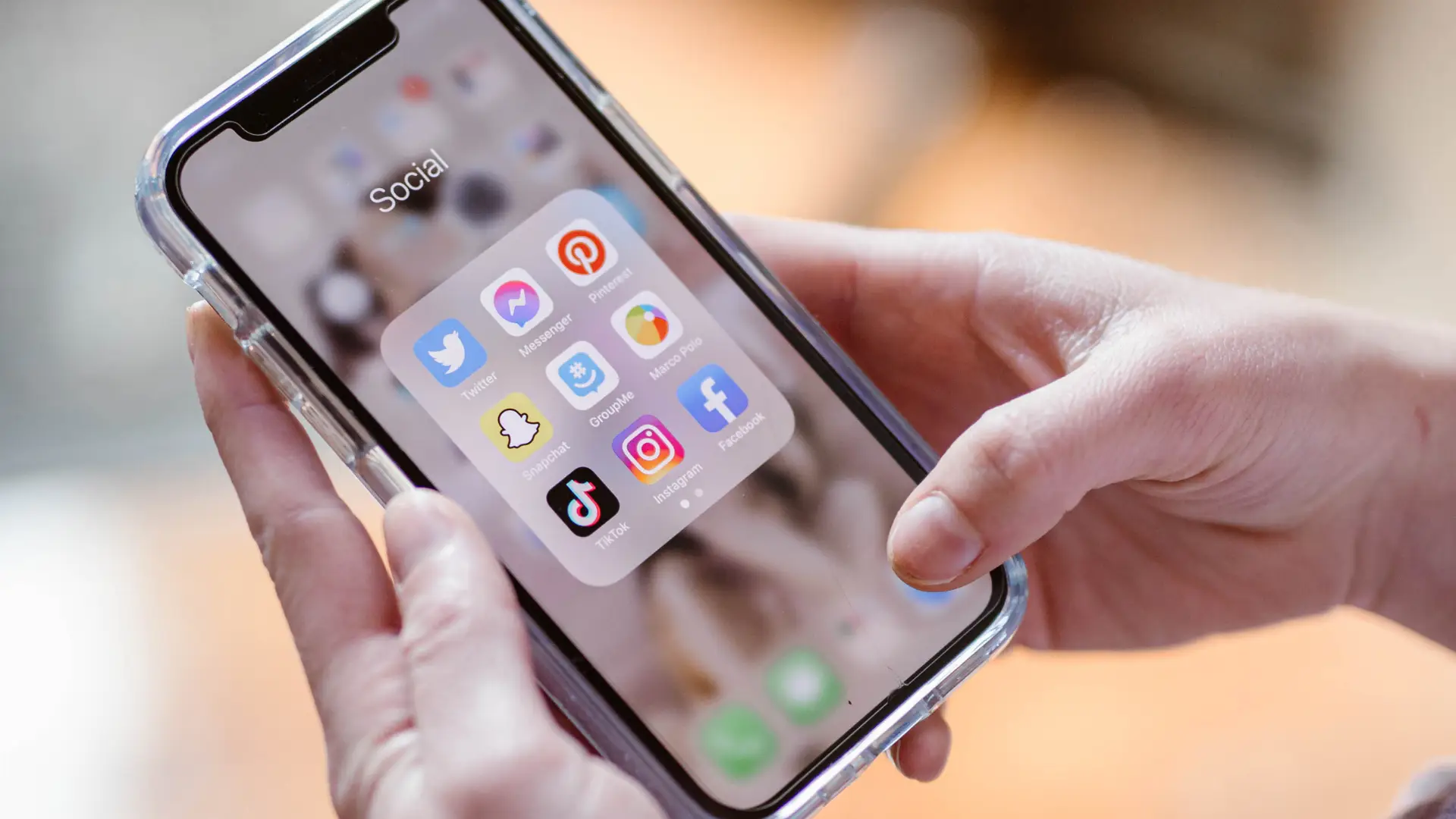I have a love hate relationship with social media. I love keeping up with friends from all over the world and from all different times in my life. I love how it gives a platform to those who likely wouldn’t have had one even just 20 years ago. And my favorite part of social media is being able to learn from the lives of people who I’d otherwise have never had the opportunity to interact with.
However, social media isn’t always a positive force in the world. It can be all consuming; causing us to fall into the trap of comparison or isolationism. You can become addicted to it without even realizing and it can have a big impact on your mental health.
Creating Healthy Social Media Boundaries
I personally noticed social media becoming more of a problem when it literally became my livelihood. My job is largely to learn about, strategize for, and schedule out social media posts. A large percentage of my day is spent if not on social media then at least thinking about social media. So, when I noticed myself idly grabbing my phone and mindlessly navigating to Instagram as a coping mechanism to deal with boredom, awkwardness, anxiety, or just silence, I knew I had to come up with some social media boundaries.
Don’t hear me saying that I’ve figured out the perfect balance between real life and online life because I haven’t, but I have found a few tips that have helped me not only separate my work from my personal life but also helped me to use my time online in a more healthy and productive way. There’s no one size fits all approach to this, but maybe some of the things that have benefited me will benefit you as well.
Do a Social Audit
Every few months I take some time to take an audit of my social media accounts, particularly who I’m following. Remember a few years ago when Marie Kondo and her organization methods were the big thing? One of her major tenants was to touch everything you own and ask yourself if it sparks joy. That’s basically what I do to my follower list. I go through every name and look at their profile and ask myself a few questions:
- Is following this person, business, or group beneficial to me?
- Am I learning or being challenged by them?
- Do I feel encouraged by their content?
- Does it make me happy to be a tiny part of their lives (if it’s a person)?
- Do I feel frustrated, angry, or inadequate when I see them online?
The goal is to help you figure out if it’s worth following a specific account anymore. If that account’s content makes me feel frustrated, angry, inadequate etc, 9 times out of 10 I unfollow them or at the very least mute them for a period of time. At the end of the day, I have the power over who I follow and if following them is doing harm to me (even if there is good sprinkled in) then it’s not worth following that person.
This is sometimes easier said than done, especially when the people who might be causing you the most issues are people you have a personal relationship with, but I promise you it’s a good decision. If that person’s social media causes you to harbor harsh feelings towards them then it’s better just not to follow them, because remember, oftentimes our online life isn’t the full story.
Avoid Performative Posting
It is incredibly easy for us to curate the perfect social media feed to the point that posting isn’t even fun anymore. I’m not advocating for mindless posting but what I am encouraging you to do is to post the things you enjoy and not worry about performing for an audience.
Social media has given anyone with access to the internet the ability to have a platform and so often we put this unnecessary pressure on ourselves to only post the most perfectly edited pictures with the exact right balance of aloofness and humor in the caption. On the other side of things we try to only post things that are hot takes or super intellectual or that we think will make people go “mmhmmm that’s good!” I struggle more with the second option if I’m being honest. Each of us has to decide what the purpose of our social media presence is and then post accordingly.
For example, Instagram is my favorite social media platform and unfortunately one that I think we all struggle the most with. For a long time I envied the girls I saw with the huge following that made the perfect posts with quotes from their most recent lifestyle blog that just felt oh so relatable to the masses. I hated that they seemed to have so little of substance to say and yet had this huge platform. I wanted a platform too, so I tried to be like them.
I hate to break it to younger me but that just wasn’t going to happen. I didn’t have thousands of followers from college and I didn’t have famous parents to help boost me onto the scene. I didn’t have some revolutionary invention or a cute etsy shop to promote myself. I just had me and my little blog and the things I enjoyed doing. It took a long time, but eventually I realized that just me was enough.
For me Instagram is where I capture memories, document my bullet journal, share book reviews, and interact with people I’m encouraged by. I can post about whatever makes me happy and share the things that have encouraged me or that I’ve been learning lately and if people want to come alongside me and enjoy those things with me then that’s awesome, but if not that’s okay too.
Take a Break
My last little piece of advice is one that you’ve probably heard a million times and are probably bad at just like me. Take a break from all the social noise. This can be as simple or as drastic as you personally need it to be, but whatever you do, take a break.
It’s important to all of us to take a break here and there for a couple reasons. For one thing, it helps us to be more present in the world around us and with the people around us. It also helps us to destress and can lessen feelings of anxiety. Plus, it encourages us to be more mindful and physically active by reducing mindless scrolling.
Taking a social media break looks different for everyone. It can be a couple hours break or a whole month. You can completely delete your apps or you can just set your phone aside. Here are a few ways that taking a break might look for you:
- Create social media time limits on your phone and actually stop when it says stop
- Turn off your notifications for social media apps so you’re not as tempted to check it
- Put your phone in another room for a set amount of time to give yourself some physical space
- Pick a day out of the week where you challenge yourself to stay off of social media
- Delete all your social apps for a period of time
My husband can tell you that I am 100% preaching to myself on this one because I’m not really good at this either, but I’m learning that if I’m not intentional in taking social media breaks then it just won’t happen. With my job, I haven’t decided which of the above options would work best for me on a regular basis but I’m working on being consistent and intentional even if the methods change each time.
For example, as I’m writing this in my living room my phone is in my bedroom. My plan for the night is to write a few blogs, do some journaling, and read a book. If I don’t have to touch social for the rest of the night, that would be good with me!
It’s become popular in today’s culture to bash social media despite the fact that most of us are using social media in order to bash social media. Ironic, right? That’s really not my goal here. I love social media. I have learned so much and been encouraged by people I otherwise would never have the chance to talk to far less be a part of their lives if it weren’t for these apps.
However, too much of a good thing can turn bad quickly especially if it’s done thoughtlessly. Social media is great when we use it intentionally and with purpose. Hopefully by putting some of these social media boundaries into practice it’ll not only help you to have a healthier relationship with social media but also help you to enjoy your time both on and offline even more!

